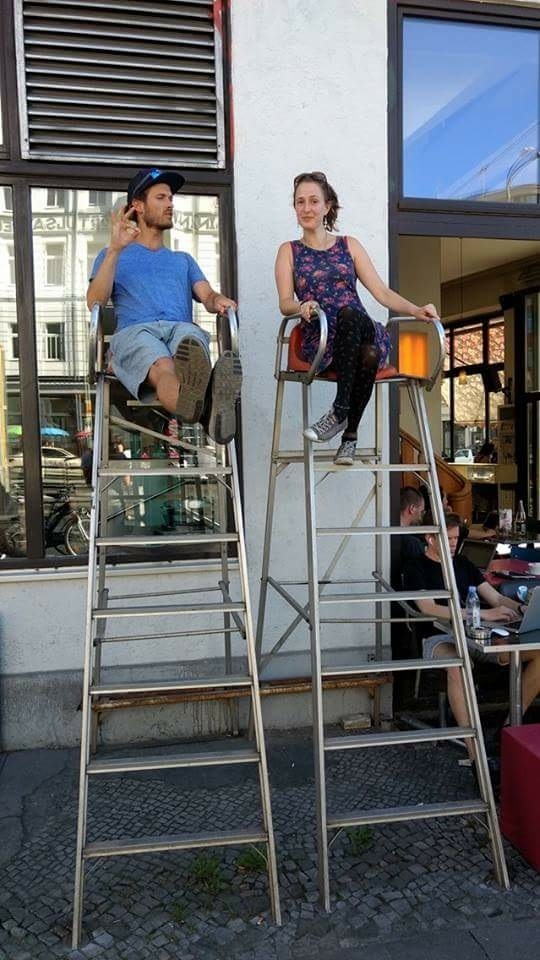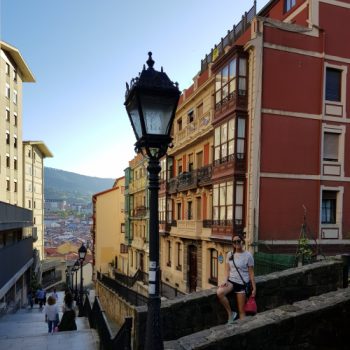
Studying a Degree in Spain (Part I)
Dear Katy,
Since I wrote the article about taking all your classes in Spanish, you have probably been wondering what it was like for me during the experience and if I was able to thrive during my time at school. I won’t lie to you, it isn’t easy, but it is a good experience. This is Part I: the main thoughts I took away from my university experience in terms of the more technical/academic side. Hopefully they can give you some insight to how you can make the most of your four years abroad!
You have an advantage: Coming from the U.S. (or possibly any non-Spanish system) I truly believe you have an advantage when faced with the Spanish system. Because they rely so much on memorization of facts—and vomiting it out on exam day—quite a bit of Spanish creativity, imagination, and innovation techniques are squashed. When you go to write an essay or an exam, you have the plus of being brought up in a school system that encouraged thinking for yourself. I had many teachers who really appreciated critical analysis and unique perspectives to different situations and academic contexts.
In addition, especially when working on homework assignments or papers, you [probably] have already learned how to properly cite your resources, something that Spanish students struggle with as they have never really learned this skill. I have found that being able to cite has made a lot of projects easier, both for me and my classmates (I have, on occasion, found it easier just to complete the entire bibliography as explaining it to my groupmates can be frustrating and useless).
 Which means you have a disadvantage as well: You are going to do stuff differently than they traditionally do it here which means that you will have some classmates and teachers that don’t value your way of thinking. Mainly this reflects in teachers who have an extremely antiquated view of how papers or exams should be done (for example, only wanting you to cite specific authors or argue with certain points of views). However, you can also find resistance from classmates who prefer to work in a way that you may be incapable of comprehending.
Which means you have a disadvantage as well: You are going to do stuff differently than they traditionally do it here which means that you will have some classmates and teachers that don’t value your way of thinking. Mainly this reflects in teachers who have an extremely antiquated view of how papers or exams should be done (for example, only wanting you to cite specific authors or argue with certain points of views). However, you can also find resistance from classmates who prefer to work in a way that you may be incapable of comprehending.
This difference of working styles can make it difficult to find classmates who are willing to work with you (and who you want to work with). It can also be a disadvantage when it comes to creating relationships with people around you. However, I also consider that it can be an advantage as well as it sorts out the people that don’t fit into what you are looking for and most of the time you are only left with the true gems.
You learn a lot (and not only academics): Although I’m pretty sure this happens no matter where or what you study, while studying completely in another culture you will learn tons about both academic and non-academic things. I am a firm believer that you will ‘get what you want’ from the school aspect of it. That means that if you really want to understand that Ethics exam, you will learn the material instead of just memorizing it; if you truly care about that gender studies paper, you will do the research to make sure it is well done.
On the other hand, your non-academic learning may develop differently than back home. To start with, your language skills will improve immensely in a short period of time (and even if you are like me and still make mistakes, you will be fluent). This is more do to the ‘do or die’ situation you will find yourself in—that is, either you learn the language or you will have serious problems—, but is also tied into the fact that you will start to make relationships with the people around you and that helps so much.
I figure I got a double degree: At the end of the day, aside from the fact that I had an amazing cultural experience and the no student debt (I really didn’t mention anywhere that I paid 800ish euros—less than 1,000 dollars—a year for school??), I also think I have the equivalent of a double major in Sociology and Spanish. Did I take any specific classes about Spanish for this double major? Not really. On the other hand, I did do my whole degree in Spanish—every lecture attended, every paper written, every assignment handed in, every presentation made, every exam completed, everything. As good as Spanish majors are in the U.S., I honestly don’t think they can ask me for any more than this*.
Now this has to do with my personal interest both in Spain and Spanish culture and I guess you could, potentially, be here for years without gaining what I consider to be the qualifications of a double major. At the same time, being here long-term means that you have to invest more into your Spanish capabilities. You have to be willing to read papers two times (or more) to truly understand them, you have to want to look up words and admit your mistakes, you have to find the bravery to get up and speak in front of your classmates in a language that isn’t yours. There is an extremely high commitment to getting a degree in another language and culture, but at the end of the day I honestly believe you walk away with much more than the simple degree you went in for.
What do you think? Have you done your degree abroad? Are you about to get started?
Let us know what you think and check out Part II—focusing in on the personal/relationship aspect of studying abroad.
Sincerely,
Spain
*I know this might sound unfair and you may want to know if I analysed poems or other Spanish literature and the like. And the answer is yes. I have analysed everything from culturalistic tendencies (i.e. macho, racist, etc.) of advertisements, cultural documents, political documents, etc. I have analysed measures taken to remove ‘negative’ tendencies, participated in debates that criticize or support them, and much more. While my experience lacks the specific ‘learn Spanish,’ I learned the heck out of Spain and Spanish during my academic time here and I cannot imagine that my comprehension of the situation is worse than any just-graduated student with a degree in Spanish studies.





2 Comments
treavoralvarado@outlook.com
I have a AA, AS, and a BA from the USA. When I went to study in Barcelona I was surprised that most students didn’t have an idea of how to write a proper paper. I literally was correcting and helping students with their Masters’s theises. I found that my education was a little bit better than those in Europe. My cousin felt the same way. I was also surprised that they barely took any test like mid-terms to see if one retain any information. The lack of testing was a huge shock. Since I was in Barcelona most of my classes were in Catalan, which was good because it made me learn it faster. I’m happy I got my education in the USA. I didn’t have a problem with the culture since I a Spanish decent and it was amazing to learn my families culture in Spain.
Sincerely, Spain
Thanks for sharing your experience Treavor! One of the strangest things for us was people not being sure how to cite a resource in a paper too. Of course, every opportunity has its ups and downs, so in addition to the things we find strange, there are many benefits to studying a degree abroad too! 🙂